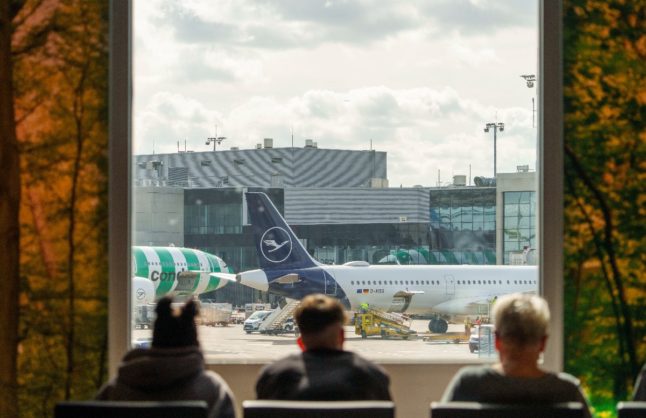What’s going on?
In 2022, inflation rates in Germany rose to 7.9 percent – the biggest increase in the cost of living since the modern Federal Republic of Germany was founded in 1949.
Groceries were on average 13.4 percent more expensive than in 2021, with prices for products like eggs, cooking oils, fats, and dairy products rising by above-average levels.
READ ALSO: Germany sees record post-war inflation in 2022
One staple food product which saw a particularly sharp price increase was butter – which cost on average around 40 percent more last year. At the peak of the price wave in May, a 250-gram pack of butter cost on average €2.29.
But now, the price of butter has fallen dramatically. At the beginning of 2023, butter was again on average around 30 cents cheaper.
Since last Wednesday, a pack of own-brand butter costs only €1.59 instead of €1.99 at discount supermarket Aldi, and prices for own-brand butter at Norma and Kaufland have also gone down by 20 percent. Rewe, Edeka, Penny and Netto now also plan to follow suit.
Why butter?
According to the Dairy Industry Association, one reason for the drop in butter prices is a result of increased supply and reduced demand.
“Since November, there has been more milk in Germany and thus more milk fat from the farms for the production of butter. At the end of 2022, the increase in raw milk volume was four percent,” Executive Director of the Dairy Industry Association, Björn Börgermann said.
On the consumer side, consumption has declined, he said, and as a result, prices have fallen.
Experts refer to butter as a so-called “corner price item” in Germany as it is available in every supermarket and discount store. As a rule, there are always 250 grams in the package – and that creates comparability, which is more difficult with other products.
READ ALSO: EXPLAINED: 10 ways to save money on your groceries in Germany
Another reason for the drop in butter prices is the fact that existing industrial contracts for butter supply came to an end on January 31st and traders were able to agree to lower prices for the new contracts beginning on February 1st.
Are other food products getting cheaper too?
Sadly, the sinking butter price does not necessarily mean that other supermarket goods will also get cheaper.
“At the heart of the matter is butter, not the entire range of dairy products,” says Björn Börgermann, Managing Director of the Dairy Industry Association.

Frank Waskow of the NRW Consumer Centre also pointed out that the butter price is not necessarily linked to the price of other dairy products.
“The butter price negotiations are uncoupled from other dairy products. They are negotiated separately,” he said, and so it may be that higher prices for products such as cheese and yoghurt will continue.
However, one glimmer of hope is that food prices are not expected to rise as sharply as in recent months. The Munich-based Ifo Institute for Economic Research expects only slight price increases for food in the coming months.
Frank Waskow also predicts that normal prices are more likely to return for products that were extremely expensive until recently.
One such product is sunflower oil. Before prices shot up last year, a litre cost around €1.29 before rising to €3.99 and then to €5.99.
Just recently, he said, it was possible to buy sunflower oil again for €1.29 – but only a 700-milliliter bottle. “That’s still more expensive than before, but back in the normal range,” Waskow said, “But we won’t reach the level of two years ago.”



 Please whitelist us to continue reading.
Please whitelist us to continue reading.
Member comments